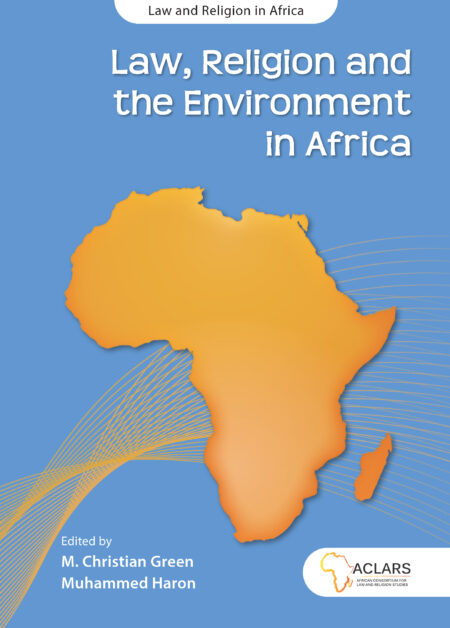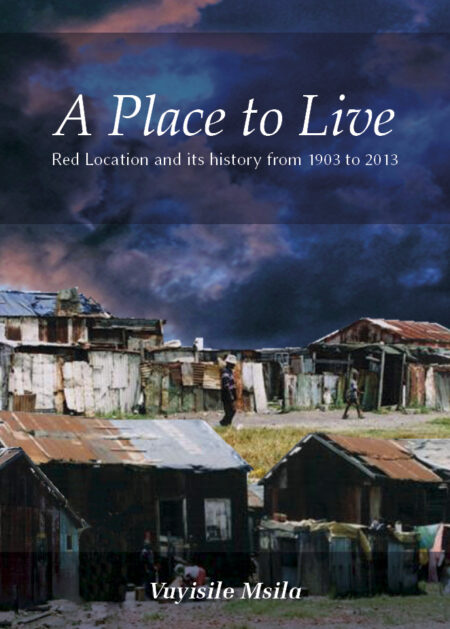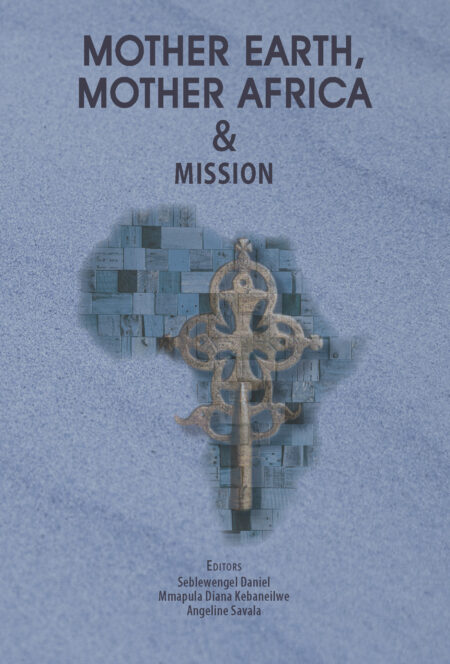-
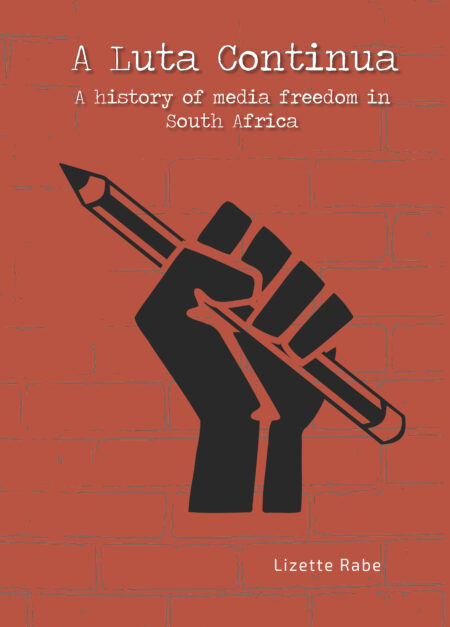
A Luta Continua
0R415,00What has media freedom entailed over the couple of centuries and successive governments of the geopolitical region that became South Africa since it was colonised by Westerners? And why can media freedom be described as both pillar and cornerstone of a democracy? ItOs simple, as in the words of Nelson Mandela, first state president of a democratic South Africa: Press freedom is the Olifeblood of democracyO.
This book tells the tale of the various states of press freedom, or unfreedom, from colonial times to today from a British governor called a dictator and a despot, through apartheidOs OpigmentocracyO, or OsjambokracyO, where the rule of law Ohas been replaced by the rule of the whipO, up to the dawn of liberation, with media freedom entrenched in Article 16 of South AfricaOs Bill of Rights.
And why should all of this concern you? Because media freedom is not about the freedom of the media. It is about your freedom. As was formulated by an editor under apartheid: OIf we donOt have a public sympathetic to a free press, not only will we not have a free press, we wonOt have a democracy either.O Or, in the words of former Sowetan editor and SANEF chair, Mpumelelo Mhkabela: OMedia freedom has nothing to do with the media, but with the freedom of citizens.O
And that is why you should know that a free media is the only guarantee for your freedom. As we have seen, both under apartheid and also under a democratic dispensation, it is a matter of a luta continua. The struggle continues. But you, the public, are the guardian of those that guard democracy. Help ensure the rights of a free media, and thereby your democratic rights and a democratic South Africa.
Print: View Print Version
-

African Conceptions of Human Dignity
0R290,00Contributors join together in this tenth ACLARS volume to propose a framing of human rights in terms of African conceptions of human dignity. Following on the signing of the Punta del Este and Botswana Declarations of Human Dignity for Everyone Everywhere in 2018 and 2023, contributors discuss human dignity as an African and indigenous concept grounded in relationship, community, and an overarching ethic of Ubuntu. Chapters further explore human dignityOs many meanings and relation to other rights in the African context, as well as human dignityOs connection to basic human needs, state obligations, religion and theology, gender and age, and the environment.
-
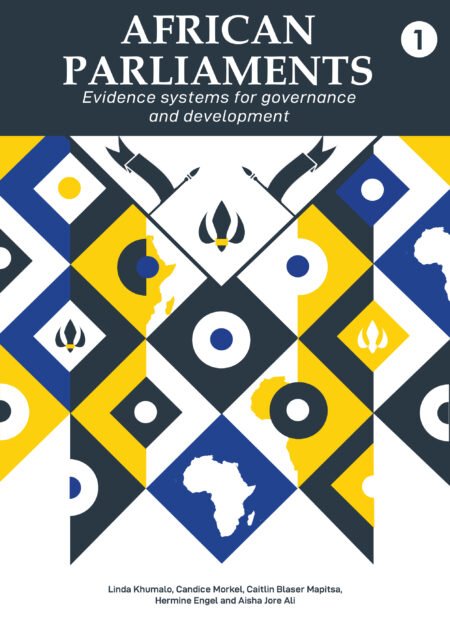
African Parliaments Volume 1
0R350,00Parliaments play a pivotal role in governance, and yet little is known about how evidence is used for decision-making in these complex, political environments. Together with its practice companion volume, African Parliaments: Systems of evidence in practice, this volume explores the multiple roles legislatures play in governance, the varied mandates and allegiances of elected representatives, and what this means for evidence use. Given the tensions in Africa around the relationships between democracy and development, government and citizen agency, this volume considers the theories around parliamentary evidence use, and interrogates what they mean in the context of African governance.
eBook: View eBook Version
-

African Parliaments Volume 1
0R280,00Parliaments play a pivotal role in governance, and yet little is known about how evidence is used for decision-making in these complex, political environments. Together with its practice companion volume, African Parliaments: Systems of evidence in practice, this volume explores the multiple roles legislatures play in governance, the varied mandates and allegiances of elected representatives, and what this means for evidence use. Given the tensions in Africa around the relationships between democracy and development, government and citizen agency, this volume considers the theories around parliamentary evidence use, and interrogates what they mean in the context of African governance.
Print: View Print Version
-

African Parliaments Volume 2
0R390,00The role parliaments play in governance is fundamentally political, and as a result, the institutional side of parliamentary organisations is often overlooked. This volume, together with the theoretical volume African Parliaments: Evidence systems for governance and development, takes a practical look at African parliaments as institutions, and explores the ways in which their structures and processes influence the use of evidence for decision making. A comparative approach helps the reader get a practical view of how this governance interplay is enacted within portfolio committees, on chamber floors, and on the campaign trail. This volume looks at various models parliaments have used to institutionalise evidence use, and considers the implications this has for governance.
eBook: View eBook Version
-

African Parliaments Volume 2
0R310,00The role parliaments play in governance is fundamentally political, and as a result, the institutional side of parliamentary organisations is often overlooked. This volume, together with the theoretical volume African Parliaments: Evidence systems for governance and development, takes a practical look at African parliaments as institutions, and explores the ways in which their structures and processes influence the use of evidence for decision making. A comparative approach helps the reader get a practical view of how this governance interplay is enacted within portfolio committees, on chamber floors, and on the campaign trail. This volume looks at various models parliaments have used to institutionalise evidence use, and considers the implications this has for governance.
Print: View Print Version
-

Anatomy of State Capture
0R390,00Following the release of the Public ProtectorOs State of Capture Report in November 2016, South Africans have been witness to an explosion of almost daily revelations of corruption, mismanagement and abuses by those entrusted to lead the nation. The extent of this betrayal is overwhelming and it is often difficult to distil what actually happened during the Zuma administration. This book draws on the insights and expertise of 19 contributors from various sectors and disciplines to provide an account of what transpired at strategic sites of the state capture project. The ongoing threat of state capture demands a response that probes beyond what happened to understanding how it was allowed to happen. The stubborn culture of corruption and misgovernance continue to manifest unabated and the predatory practices which enable state capture have not yet been disrupted. It is our hope that the various case studies and analyses presented in this book will contribute to confronting these shortcomings in current discourse, and open avenues for progressive deliberation on how to collectively reclaim the prospects of a just and prosperous South Africa for all.
eBook: View eBook Version
-

Anatomy of State Capture
0R312,00Following the release of the Public ProtectorOs State of Capture Report in November 2016, South Africans have been witness to an explosion of almost daily revelations of corruption, mismanagement and abuses by those entrusted to lead the nation. The extent of this betrayal is overwhelming and it is often difficult to distil what actually happened during the Zuma administration. This book draws on the insights and expertise of 19 contributors from various sectors and disciplines to provide an account of what transpired at strategic sites of the state capture project. The ongoing threat of state capture demands a response that probes beyond what happened to understanding how it was allowed to happen. The stubborn culture of corruption and misgovernance continue to manifest unabated and the predatory practices which enable state capture have not yet been disrupted. It is our hope that the various case studies and analyses presented in this book will contribute to confronting these shortcomings in current discourse, and open avenues for progressive deliberation on how to collectively reclaim the prospects of a just and prosperous South Africa for all.
Print: View Print Version
-
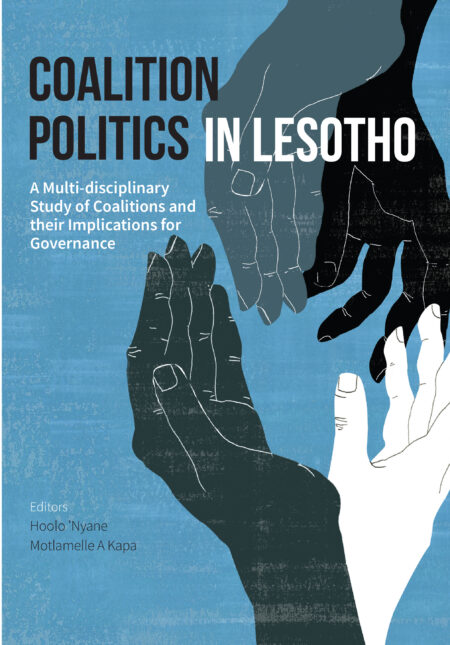
Coalition Politics in Lesotho
0R350,00Ever since independence from Britain in 1966, Lesotho has been an experimental laboratory of various governance models. The country has experienced multi-party models, plain dictatorships, one-party dominated models, military juntas and, recently, coalition governments. The advent of coalition politics since 2012 has brought a paradigmatic shift in the entire socio-political landscape in the country. This era has, hitherto, largely remained under-studied. Coalition Politics in Lesotho is the first book-long study specifically dedicated to this significant era in the countryOs history. Edited by the two leading politico-legal scholars on Lesotho, the book is a multi-disciplinary study of the implications of coalitions for governance and development.E
eBook: View eBook Version
-

Coalition Politics in Lesotho
0R280,00Ever since independence from Britain in 1966, Lesotho has been an experimental laboratory of various governance models. The country has experienced multi-party models, plain dictatorships, one-party dominated models, military juntas and, recently, coalition governments. The advent of coalition politics since 2012 has brought a paradigmatic shift in the entire socio-political landscape in the country. This era has, hitherto, largely remained under-studied. Coalition Politics in Lesotho is the first book-long study specifically dedicated to this significant era in the country’s history. Edited by the two leading politico-legal scholars on Lesotho, the book is a multi-disciplinary study of the implications of coalitions for governance and development.
Print: View Print Version
-
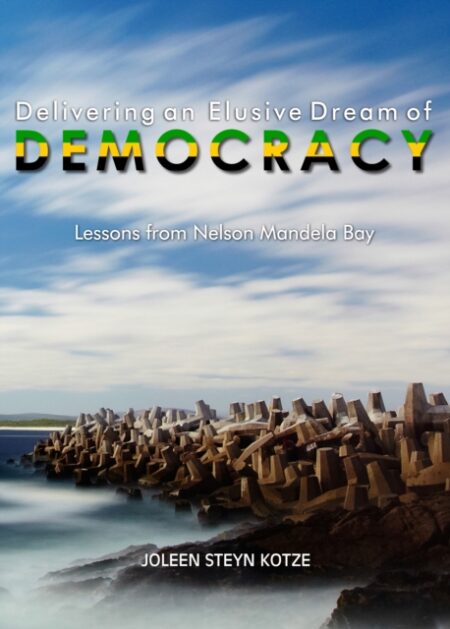
Delivering an Elusive Dream of Democracy
0R400,00This book analyses the decline of the ANC in Nelson Mandela Bay, the economic hub of the Eastern Cape, also known as the party’s heartland. Over the course of last twenty-four years, party dominant dilemmas have plagued the ANC in the Nelson Mandela Bay. This includes corruption, political factionalism, blurring the line between party and state, as well as engaging in spoils politics. While this metro had encapsulated the ‘Dream of 94’ since the inception of democracy in South Africa, weak quality of governance, lack of political efficacy, and mediocre, if not anorexic, service delivery effectively led to the ANC losing this symbolically important metropolitan municipality. With the loss of Nelson Mandela Bay, voters effectively demonstrated that they are no longer willing to accept the liberation narrative and elusive promise of a better tomorrow. The ANC can no longer rely on the political capital of the liberation struggle in securing and maintaining its electorally dominant position.
The loss of Nelson Mandela Bay, coupled with Johannesburg and Tshwane, could potentially signal the end of ANC electoral dominance. The author tracks the electoral decline of the ANC and analyses the dynamics that impact on its ability to potentially sustain its political and electoral dominant position in future elections.eBook: View eBook Version
-

Delivering an Elusive Dream of Democracy
0R0,00This book analyses the decline of the ANC in Nelson Mandela Bay, the economic hub of the Eastern Cape, also known as the party’s heartland. Over the course of last twenty-four years, party dominant dilemmas have plagued the ANC in the Nelson Mandela Bay. This includes corruption, political factionalism, blurring the line between party and state, as well as engaging in spoils politics. While this metro had encapsulated the ‘Dream of ’94’ since the inception of democracy in South Africa, weak quality of governance, lack of political efficacy, and mediocre, if not anorexic, service delivery effectively led to the ANC losing this symbolically important metropolitan municipality. With the loss of Nelson Mandela Bay, voters effectively demonstrated that they are no longer willing to accept the liberation narrative and elusive promise of a better tomorrow. The ANC can no longer rely on the political capital of the liberation struggle in securing and maintaining its electorally dominant position. The loss of Nelson Mandela Bay, coupled with Johannesburg and Tshwane, could potentially signal the end of ANC electoral dominance. The author tracks the electoral decline of the ANC and analyses the dynamics that impact on its ability to potentially sustain its political and electoral dominant position in future elections.
Print: View Print Version
